

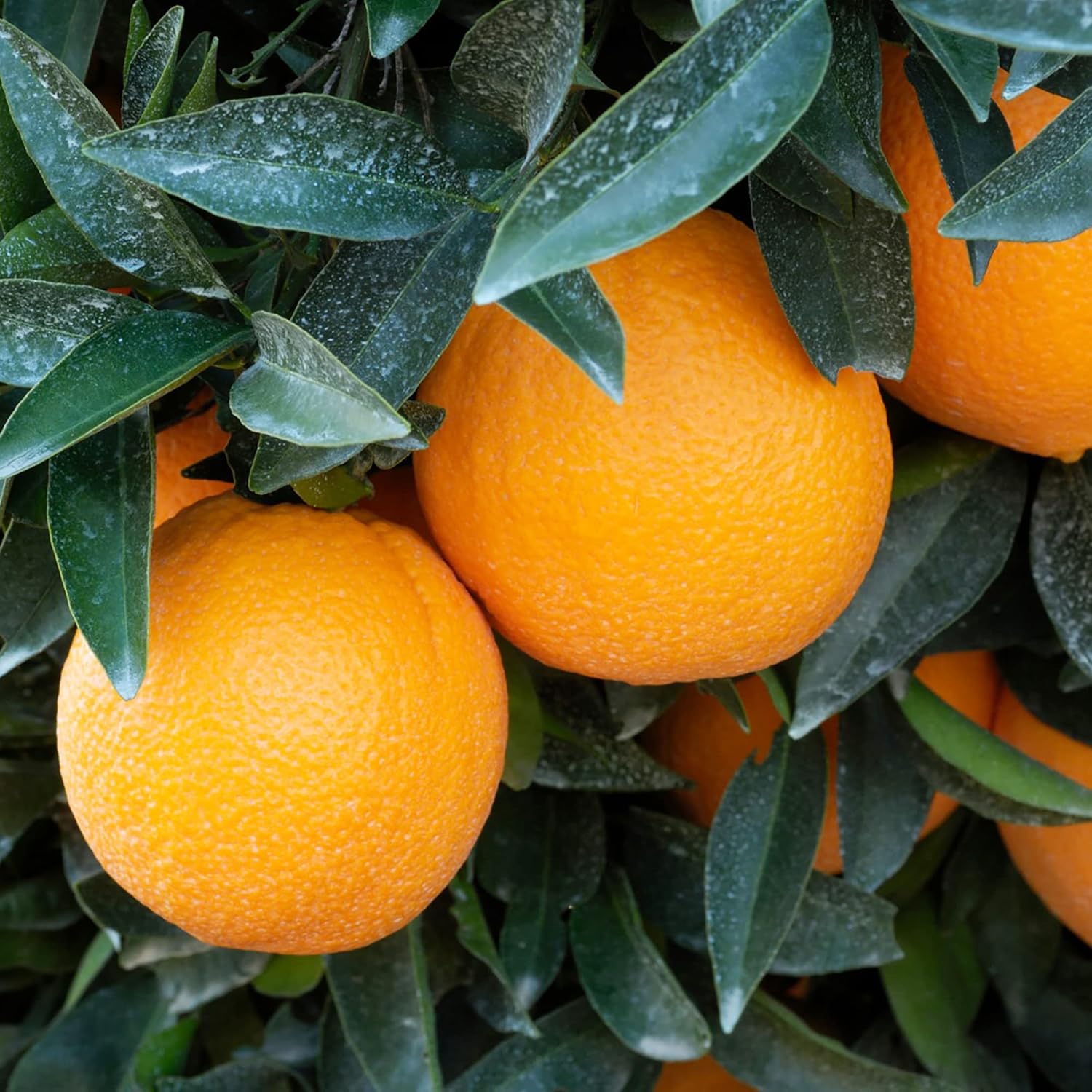
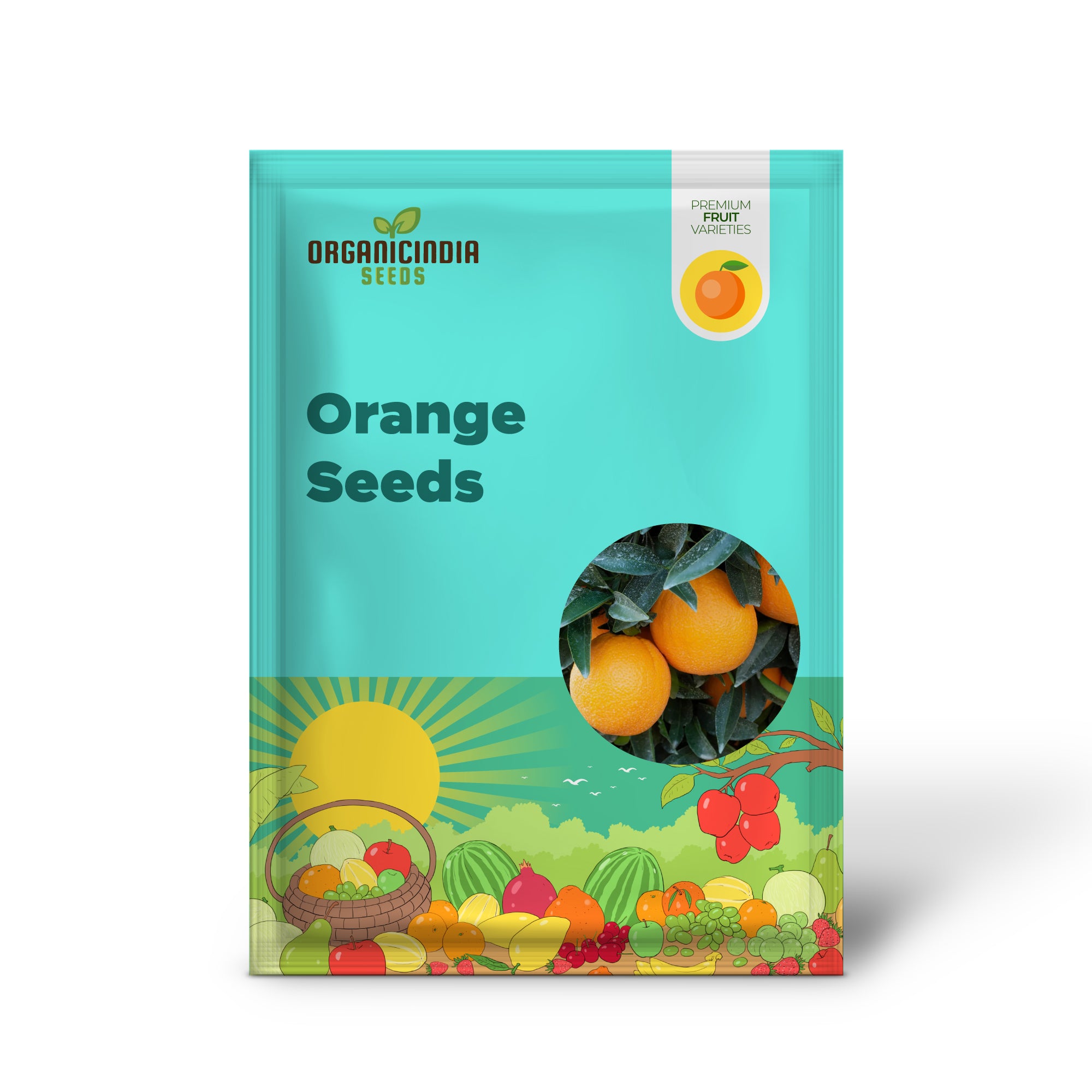
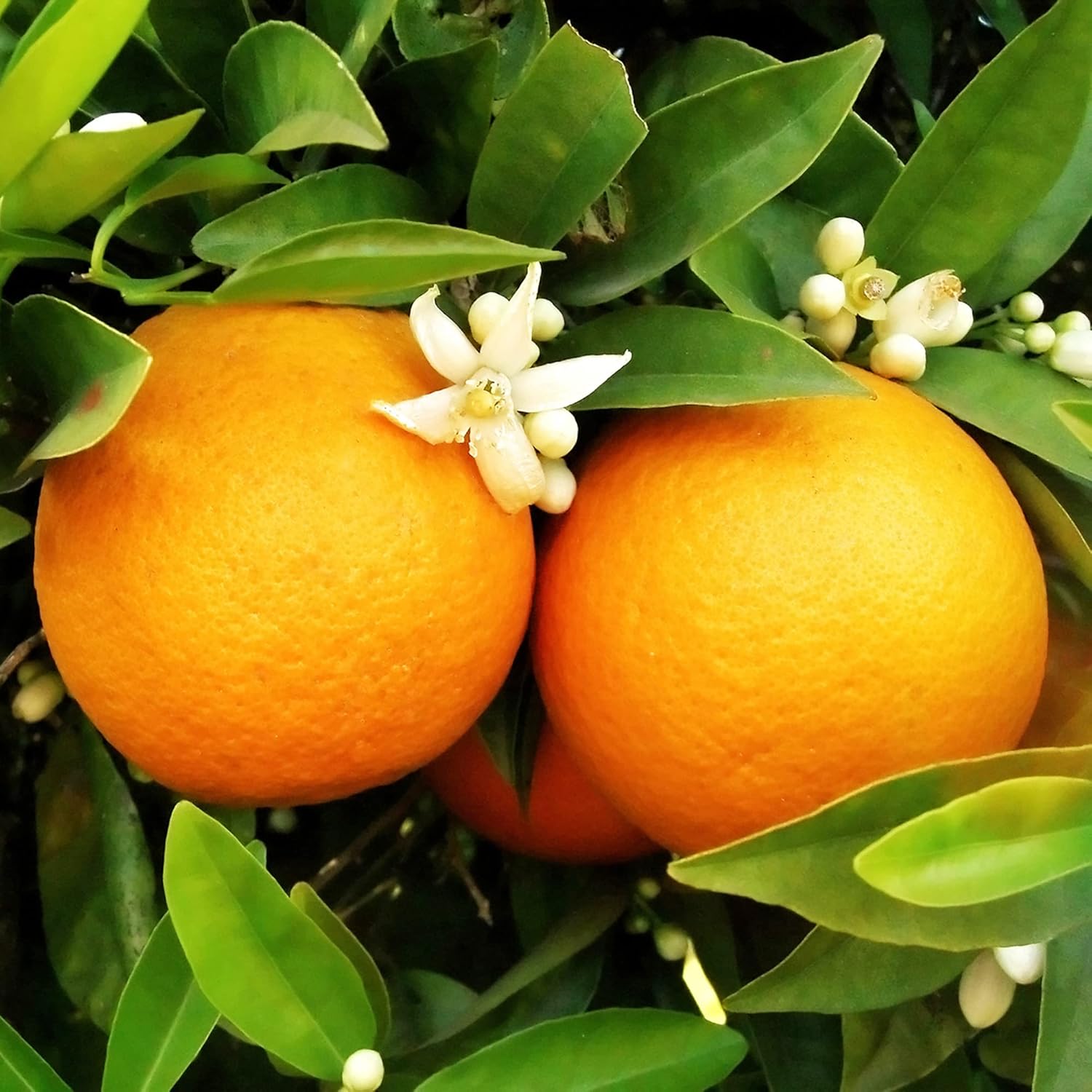
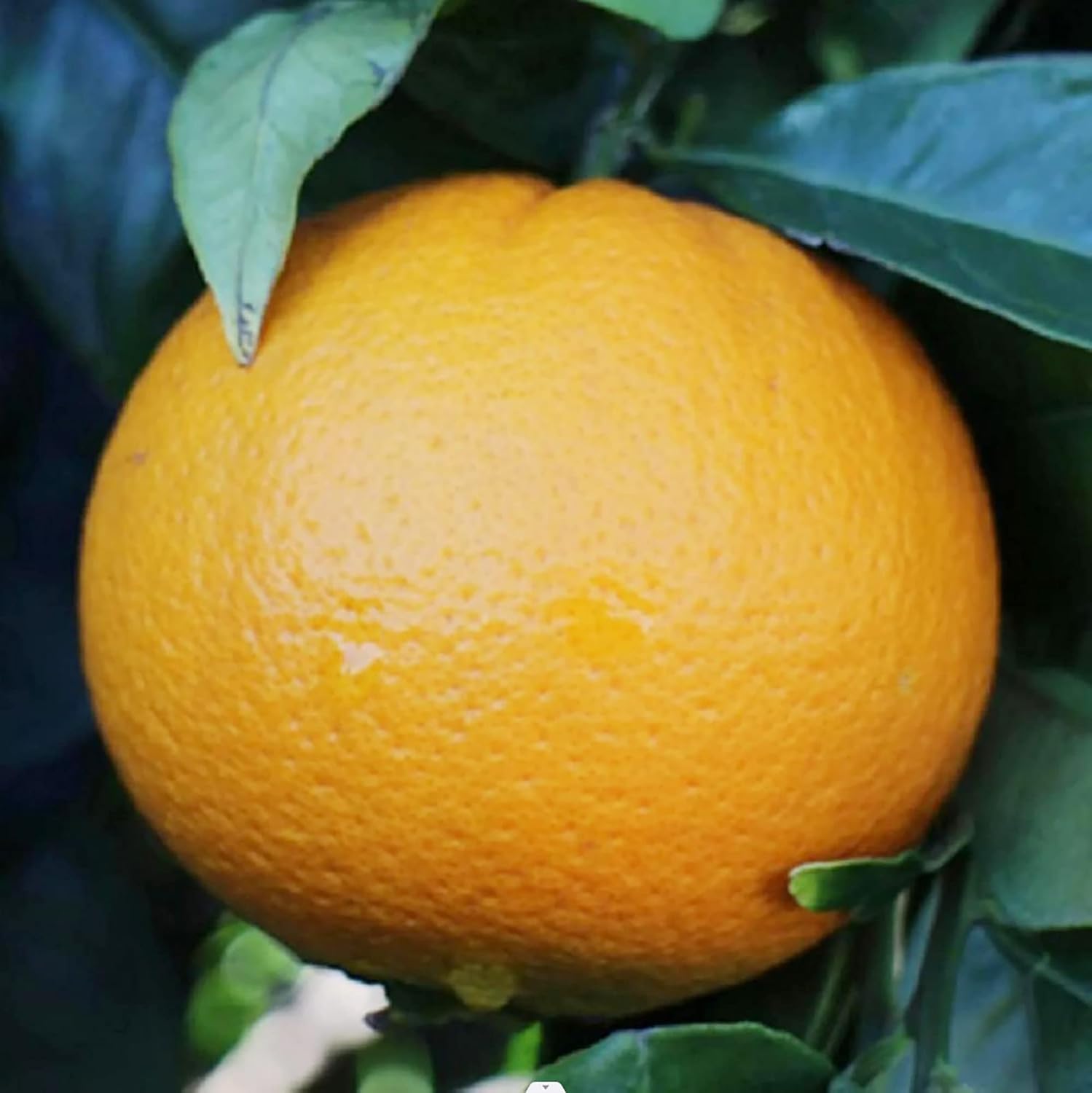
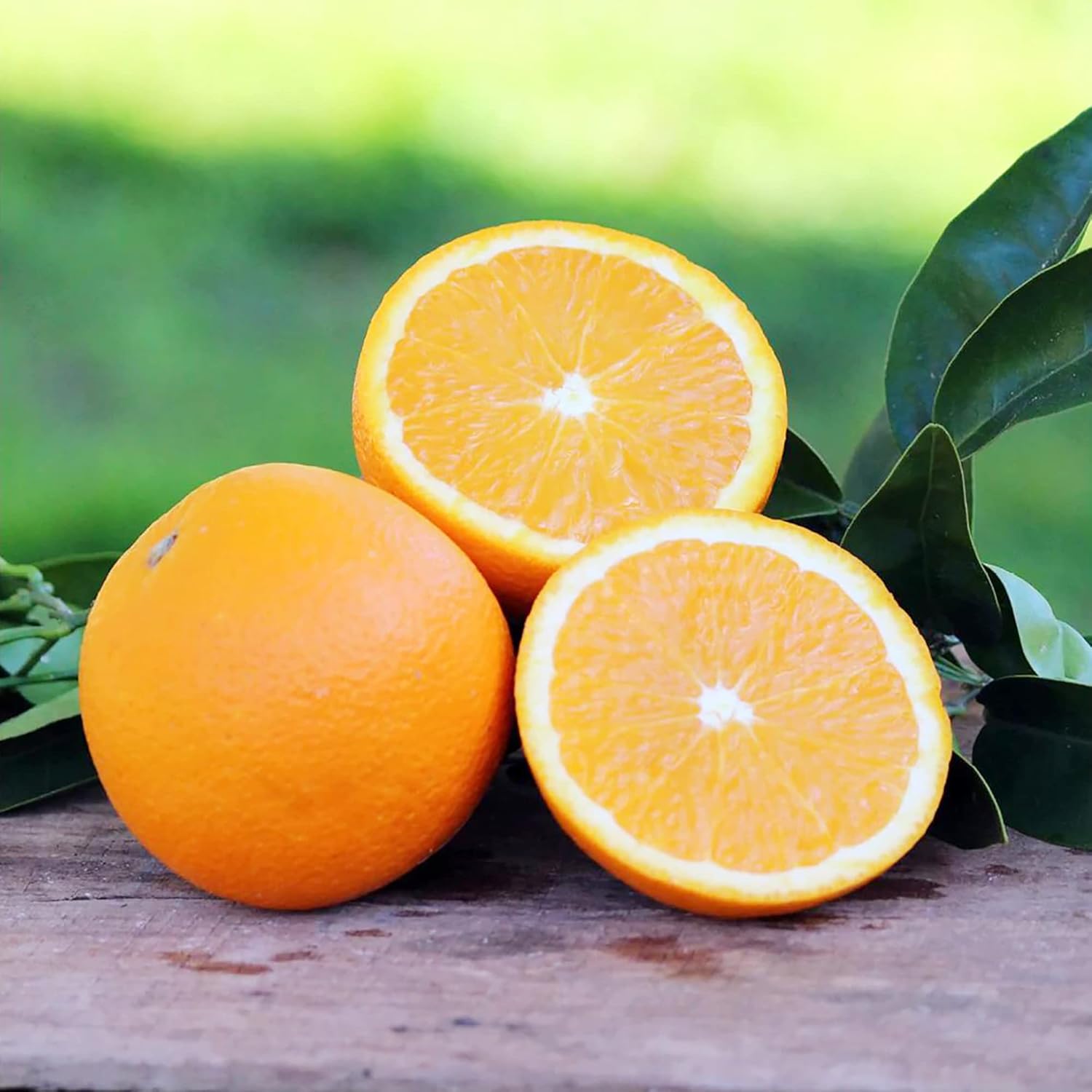
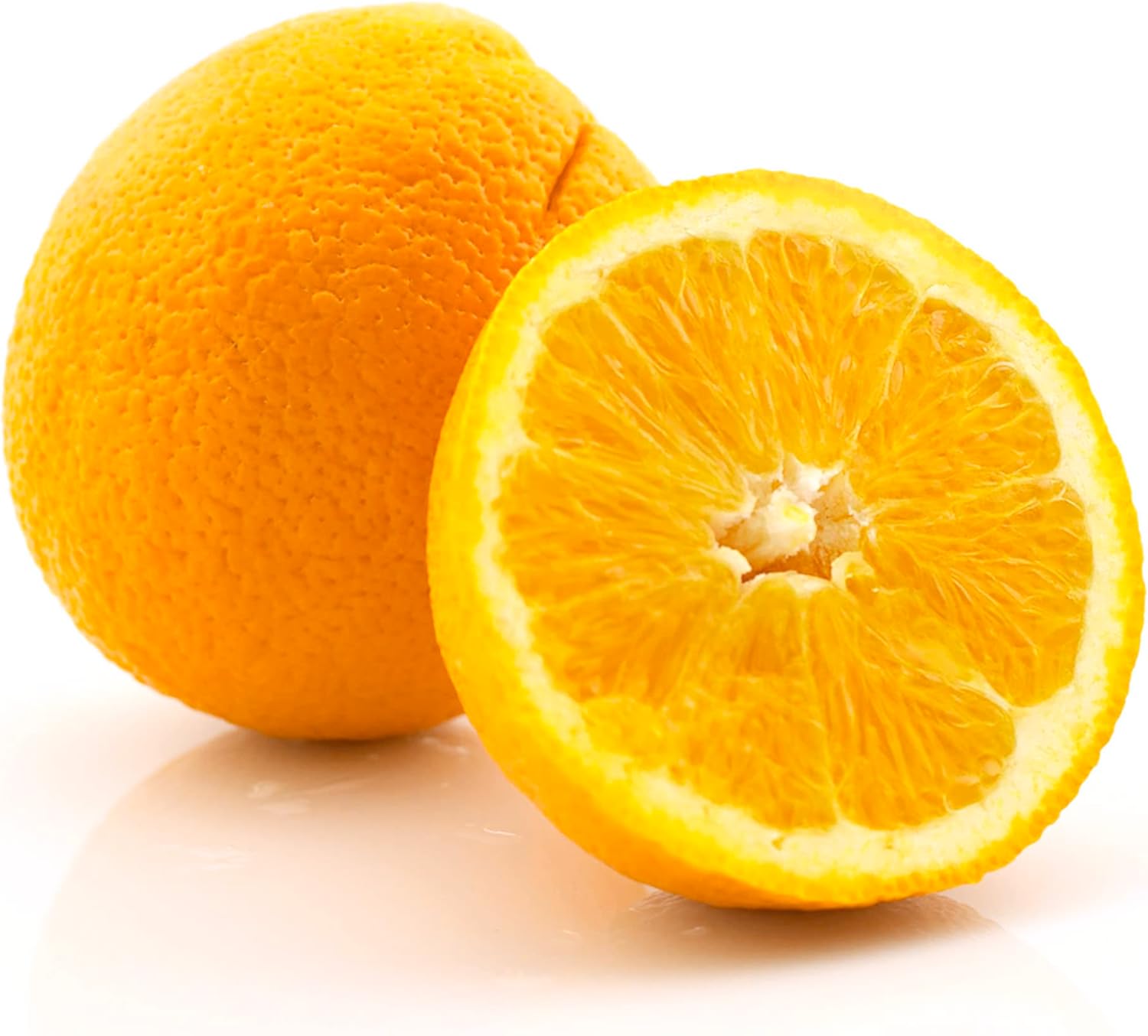
Free Shipping
Safe & Secure Payments
Bring the sunshine of California’s most famous citrus variety to your garden with Washington Navel Orange Seeds. Known for their exceptional sweetness, easy-to-peel skin, and juicy, seedless flesh, these oranges are a favorite among home gardeners and citrus enthusiasts alike.
This classic orange variety grows into an evergreen fruit tree that is both ornamental and productive, offering fragrant white blossoms and rich green foliage. Ideal for containers, patios, or backyard orchards, Washington Navel Oranges provide delicious fruit and beautiful seasonal appeal.
Premium-quality Washington Navel Orange Seeds for planting
Produces sweet, juicy, and seedless oranges with tender flesh
100% Non-GMO and high germination rate
Fragrant white citrus blossoms add ornamental beauty
Perfect for pots, patios, greenhouses, or outdoor gardens
Cold-tolerant and low-maintenance, ideal for all skill levels
Great for fresh eating, juicing, and desserts
Common Name: Washington Navel Orange
Scientific Name: Citrus sinensis ‘Washington Navel’
Plant Type: Evergreen fruit tree
Seed Type: Non-GMO
Growth Habit: Compact and bushy
Height: 8–15 feet (container-grown) / up to 20 feet (outdoors)
Light Requirements: Full sunlight (minimum 6–8 hours daily)
Soil Type: Well-drained, slightly acidic soil (pH 6.0–6.5)
Watering: Moderate; keep soil evenly moist, avoid waterlogging
Season: Best sown in spring or early summer
USDA Hardiness Zones: 9–11
Germination Time: 3–6 weeks under warm, moist conditions
Temperature for Germination: 25–30°C (77–86°F)
Maturity: 2–3 years for fruit-bearing with proper care
Pollination: Self-pollinating
Uses: Fresh consumption, juicing, marmalades, and decorative purposes
Soak seeds in warm water for 24 hours before planting.
Use a well-draining potting mix enriched with compost or organic matter.
Plant seeds ½ inch deep and cover lightly with soil.
Maintain soil moisture; avoid letting it dry out completely.
Keep in a warm, sunny location (25–30°C / 77–86°F).
Germination typically occurs within 3–6 weeks.
Once seedlings reach 6–8 inches, transplant to larger pots or garden beds.
Provide regular watering and prune lightly to shape growth.
Protect from frost and strong winds for optimal fruiting.
Choose options





